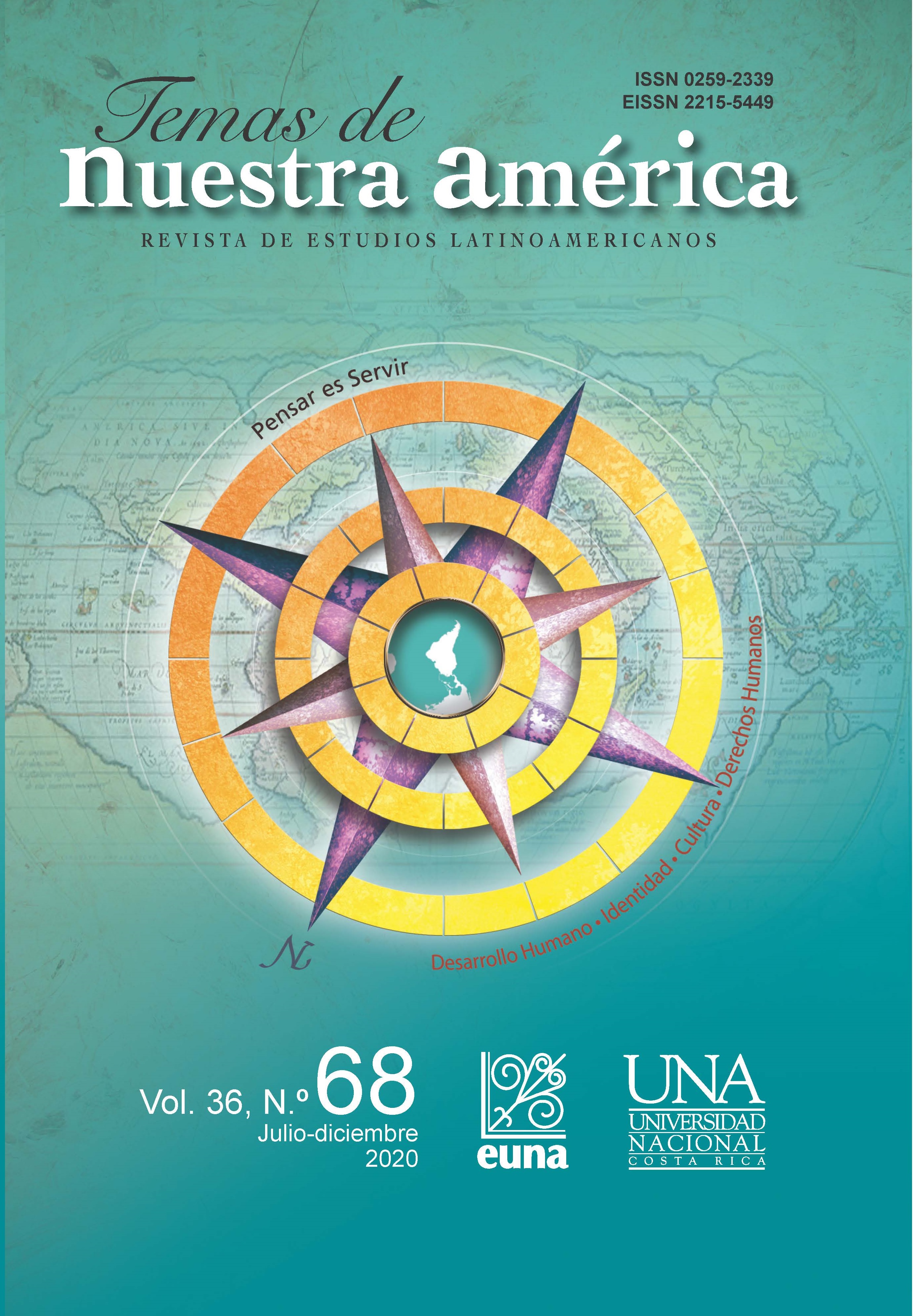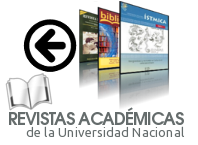A study of our prehistoric past from a gender perspective
DOI:
https://doi.org/10.15359/tdna.36-68.2Keywords:
Archeology, Prehispanic peoples, gender perspective, historical sciences,, Latin AmericaAbstract
The purpose of the research presented is to analyze and reflect on the androcentri bias with which historical disciplines have been constituted and in particular archeology, a science that studies extinct societies through their material footprints; understanding that, the repercussions of the study and the interpretationsm of our American past cause an understanding and reasoning in our present. In this sense, archeology has played a role of complicity in the reproduction and naturalization of gender stereotypes imposed in our society, which end up creating and legitimizing asymmetric relationships between individuals and groups. It is based on a bibliographical research, focused from a gender and feminist perspective, whose purpose has been to review the discussions within archaeology about gender and how this translates into archaeological practice and, as a consequence, into the understanding of our pre-Hispanic past. The purpose is further contributing with proposals and questioning that serve to apprehend and understand our historical past from a decolonial perspective, understanding that it is part of our academic work to reclaim groups historically excluded in intellectual production, in this case indigenous peoples and women and, in turn, recognize ancestral knowledge as alternatives for the construction of a society different from the current one
References
Amodio, E. (1999). Aproximaciones a un lugar de encuentro entre historia y antropología. En Emanuele Amodio (Ed.), La vida cotidiana en Venezuela durante el siglo XVIII (3-14). Dirección de Cultura LUZ.
Bourdieu, P. (2000). Dominación masculina. Editorial Anagrama.
Butler, J. (2007). El género en disputa: El feminismo y la subversión de la identidad. Paidós Ibérica.
Castillo Bernal, S. (2011). No a las etiquetas teóricas. La inserción de los estudios de género en la práctica arqueológica. En Miriam López Hernández y María Rodríguez Shadow (Editas.), Género y sexualidad en el México Antiguo (15-34). Centro de estudio de la Mujer. http://www.academia.edu/8714589/No_a_las_etiquetas_te%C3%B3ricas_._La_inserci%C3%B3n_de_los_estudios_de_g%C3%A9nero_en_la_pr%C3%A1ctica_arqueol%C3%B3gica
Conkey, M. (2001). Thinking about with theory and method. En Cecilia Klein (Edit.), Genderin pre-hispanic American (341-362). Dumbarton Oaks.
Conkey, M. y Spector, J. (1984). Archaeology and the Study of Gender. En Michael Schiffer (Edit), Advances in Archaeological Method and Theory (1-38). Academic Press.
Díaz-Andreu, M. (2005). Género y arqueología: una nueva síntesis. En M. Sánchez Romero (Edit.), Arqueología y género (13-51). Editorial Universidad de Granada.
Lewellen, T. (2003). Introducción a la antropología política (3ª ed.). Ediciones Ballaterra.
Moore, H. (2009). Antropología y feminismo. (5ªed.). Ediciones Cátedra.
Navarrete, R. (2008). Cucharas y picos: Contribución de la arqueología feminista al estudio del
género. Revista venezolana de estudio de la mujer, 13(30), 133- 154.
Rosaldo, M. Z. (1979). Mujer, cultura y sociedad: Una visión teórica. En O. Harris y K. Young
(Comps.), Antropología y feminismo (153-180). Editorial Anagrama.
Scott, J. (1990). El género: Una categoría útil para el análisis histórico. En Nash y Amelang
(Editas.), Historia y género: Las mujeres en la Europa moderna y contemporánea. (23-
. Alfons el magnanim.
Shepherd, N., Gnecco, C. y Haber, A. (2016). Arqueología y decolonialidad. Editores de Signo.
Spector, J. (1993). What this awl means. Feminist Archaeology at Wahpeton Dakota Villages.
Minnesota Historical Society Press.
Downloads
Published
How to Cite
Issue
Section
License
Esta obra de Revista Temas de Nuestra América está bajo una Licencia Creative Commons Atribución-NoComercial-SinDerivar 4.0 Internacional.
Cualquier permiso que trascienda dicha licencia, debe solicitarse por escrito a la persona directora de la Revista










